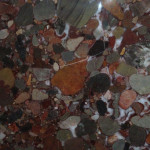Is There A “Dry Drunk” in Your Life?
A key facet of being in recovery is moving forward in the right direction, regardless of how fast or slow you’re going. If you become lazy or disinterested in your recovery, the natural tendency is to fall back into addictive behaviors and eventually return to using again. Another common behavior linked to Dry Drunk Syndrome is poor impulse control. Individuals with this symptom tend to do what they want, when they want, with little regard to who they hurt in the process. Impulsivity can also be linked with grandiosity, as people may often engage in impulsive behaviors as a way of being the center of attention.
- Remember that addiction is a serious disease, and you’re doing the best you can.
- The belief is that once they have quit drinking or completed rehab, there will be an improvement in all the currencies of their lives.
- Feeling good about personal accomplishments and prideful goals is strong emotional medicine for the alcoholic working on their recovery.
- This can mean attending one on one counselling or therapy, going to group therapy sessions, or attending meetings such as AA or SMART Recovery.
- Based on this definition, the symptoms of “dry drunk syndrome” may constitute a relapse, even if the person doesn’t drink.
- So, it’s important to remember the signs and symptoms of dry drunk syndrome.
Recovery Support
However, doing this is what fosters the sense of self-awareness that carries a person through a life of peace, fulfilment, and sobriety. Healing certainly isn’t a glamorous or easy process, but it is incredibly worth the freedom and peace that is waiting on the other side of it. The dry drunk will take it as a predetermined outcome that they’ll fail in recovery and assumes a “why bother” attitude. This kind of self-defeatism makes failure a self-fulfilling prophecy and confirms doubts about the treatment and recovery process. Everyone has goals, but addiction can completely push these goals aside.
Unresolved Emotional And Mental Health Issues
Signs most commonly linked with abstinence syndromes, like alcohol withdrawal sweating, are generally uncommon among protracted abstinence problems, just like most other acute withdrawal signs. Some people believe the term dry drunk is an inappropriate way to refer to a person who is trying to go through the process of alcohol recovery. Many of the original Alcoholics Anonymous (AA) members followed the 12 Steps to alleviate dry drunk syndrome. As the earlier members found relief through surrender and commitment to abstinence, so can you.
Begin Your Recovery Journey Today
Amanda Stevens is a highly respected figure in the field of medical content writing, with a specific focus on eating disorders and addiction treatment. Amanda earned a Bachelor of Science degree in Social Work from Purdue University, graduating Magna Cum Laude, which serves as a strong educational foundation for her contributions. A person who has PAWS may find it helpful to have the support of their loved ones. A person experiencing symptoms of PAWS should not feel shame or discouragement. These symptoms can be a normal part of the recovery process from AUD.
Even the people who you alienated before you quit drinking may welcome the opportunity to spend time with you. A big part of recovery and your new sober life is making your physical health a priority. Try healthful recipes, join a gym, take up a sport, try yoga (which can have mental benefits as well as physical ones). Learning the symptoms of dry drunk can you drink on cymbalta syndrome as well as a few strategies to better cope can help you or someone you love to move past this stumbling block toward lasting recovery. People recovering from alcohol misuse or addiction often experience difficult, painful emotions. They might feel frustrated or angry, struggle with their desire to drink, or express a lot of negative thoughts.
[9] It appears that symptoms can last upwards of two years after the last use of alcohol, with some case studies reporting symptoms being experienced longer. Sleep study research on people recovering from alcohol use disorder has found that sleep abnormalities can last one to three years after stopping alcohol use. Abnormalities included problems falling asleep, decreased total time asleep, and sleep apnea. The best way to prevent and/or cope with the physical and mental symptoms of dry drunk syndrome is to stay steadfast in your recovery. If you’re an alcoholic now, you might be concerned about going through dry drunk syndrome.
Non-drinking alcoholics with dry drunk syndrome tend to have a negative outlook on their recovery and life in general. This can make it hard to mend relationships with loved ones and get back into a normal, healthy routine. Addiction Resource is an educational platform for sharing and disseminating information about addiction and substance abuse recovery centers. Addiction Resource is not a healthcare provider, nor does it claim to offer sound medical advice to anyone.
He reminisces about being back in college and drinking with his buddies, but he’s simultaneously jealous of people who have successfully undergone rehab. Engaging in regular physical activity and hobbies can also help redirect your focus and energy into positive outlets. Establishing a reliable support network of friends, family, or support groups who understand the struggle of recovery is invaluable.
But remember that this phase is a fairly normal part of recovery, and it won’t last forever. It’s equally important to explore the habits and reasons behind your drinking, ideally with a qualified therapist. Keep in mind that these hobbies might not feel quite as enjoyable during what happens if i report a drug dealer the early stages of recovery. If some time goes by and you still feel the same way, you can always give a different coping technique a try or explore a new hobby. This part of recovery is pretty common, even if people don’t recognize it as such or talk about it much.
Incorporating effective Therapy Techniques such as Cognitive Behavioral Therapy (CBT) and Dialectical Behavior Therapy (DBT) can significantly impact your recovery journey. CBT helps you identify and challenge distorted thought patterns, while DBT focuses on emotional regulation and mindfulness. Both are invaluable tools for managing the underlying emotional and psychological turmoil of addiction. Incorporating healthy lifestyle changes alongside therapy enhances the recovery process. Regular physical activity, mindfulness practices, and engaging in hobbies and interests that bring joy are all part of creating a balanced life.
In cases where dry drunk syndrome intertwines with other mental health disorders, a comprehensive psychiatric evaluation can pinpoint the challenges. Medications might be prescribed to manage symptoms of depression, anxiety, or other how to help someone with a drinking problem conditions, complementing other treatment modalities. Dry drunk syndrome is an actual psychological phenomenon that can easily happen to anyone who is struggling with addiction and who is not fully focused on their continued recovery.
Connecting with people who can help support you in establishing new healthy coping skills can help you progress through protracted withdrawal. Northpoint Recovery inpatient drug and alcohol rehab that can help you learn new positive habits and life skills that can replace destructive and dysfunctional addictive behaviors. By using an individualized evidence-based strategy treatment strategy, Northpoint Recovery can show you how to do more than just abstain from substance abuse – we can show you how to recover. Moving into dry drunk behaviors is only going to make your recovery worse. It will also help you recapture the joy that your life has been missing. Understanding the concept of a dry drunk is crucial in the journey towards lasting recovery.





